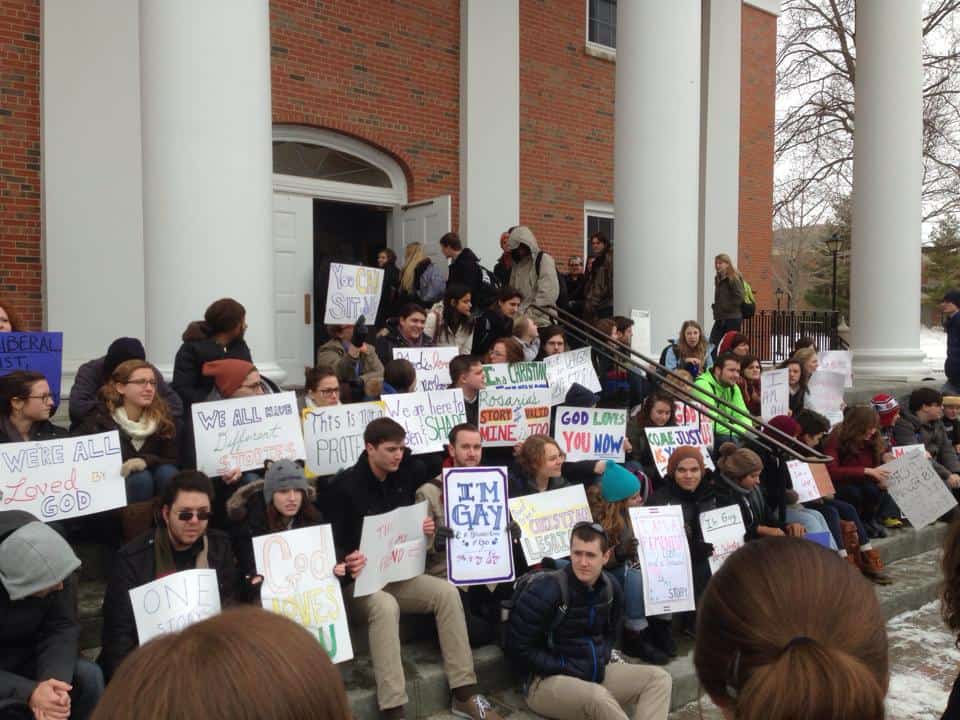
Wheaton Students Tell More than a Single Story
February 16, 2014
We may not all be rich. We don’t all have successful careers. We aren’t all healthy. But the one thing we all have, are stories. From the beginning of time, we have thrived on connecting via stories. We consume stories for leisure, speak our stories for sanity, and create stories to capture our imagination.
We are swayed by stories. Stories can compel others in ways propositions and facts statements cannot. Our attention wanes at statistics and exegesis, but perks at vivid characters in an engaging plot. Stories have been proven to be an effective rhetorical device. They draw people’s attention in and leaves them satisfied upon conclusion.
You cannot debate a story. While it may be tempting to try and deconstruct the reasoning behind stories when it goes against your agenda, the genius of stories is that it can’t be used as an argument. The story of a chain smoker’s longevity sits uncomfortably in the presence of someone advocating the ills of nicotine. The story just is. We cannot alter it, the only thing we can control is how we choose to respond to it. Any attempts to dishonor or discredit someone’s story is an assault to their humanity.
Given the degree of power stories hold to impact our society, it is incumbent upon us to do justice to all stories by cultivating a safe place where every voice is valued. Recently, a group of students from my alma mater, Wheaton College, coordinated a sit-in demonstration before a chapel speaker shared her story. The Wheaton Record, the official school newspaper, documents the concerns from the leader of the demonstration:
Massey said that he feared that students would be isolated or marginalized by Butterfield’s story of transformation from “radical, lesbian, leftist professor to this morally good Christian,” which could make LGBTQ or feminist students feel that those two identities were “oppositional” or mutually exclusive.
“We feared that if no conversation was added to the single message of the speaker that students who are not very well informed were going to walk into chapel, hear the message, and have misconceptions confirmed or that students who are LGBT would be told that this story is the absolute way that things happen,” Massey said.
The students rallied their movement surrounding the theme, “More than a Single Story”, because they recognized the potential this story, told by an invited speaker from an authoritative platform, can impact the community in ways that paint a sanitized picture of a complex issue. Their hopes were not to dishonor this individual story, but to include multiple stories in the larger narrative.
Although each person has a story to tell, an unequal distribution of power means gatekeepers control the types of narratives that get told, and at what volume. Winston Churchill famously said, “History is written by the victors.” The stories passed down to us are an interpretation of history from a single perspective: the ones with power. This ensures there are stories upon stories kept silent from fear, shame, and a sense of powerlessness. The real stories of these hidden voices, then, begin to be caricatured by the prevailing narrative, until real people become mere stereotypes. The African author, Chimamanda Ngozi Adichie says, “The single story creates stereotypes, and the problem with stereotypes is not that they are untrue, but that they are incomplete. They make one story become the only story.” A single story quickly pushes all other stories to the periphery, a broadcasted story drowning out the whispered ones. In telling “More than a Single Story”, the students gently insisted each person gets a turn at the mike.
The goal is not to have a shouting contest. After the sit-in demonstration, the Wheaton students respectfully entered the chapel to hear the speaker’s story. Every story deserves to be heard, but the best stories are the ones which make room for more to be told. The best stories aren’t prescriptive or agenda driven. They are ones told with a quiet strength, compelling their listeners into deeper reflection, and liberating them into telling their own. A truly powerful story shares its power and invites others to participate in the narrative.
May we learn to be masterful story tellers, sharing our stories with courage and conviction, because there is always room for more.
